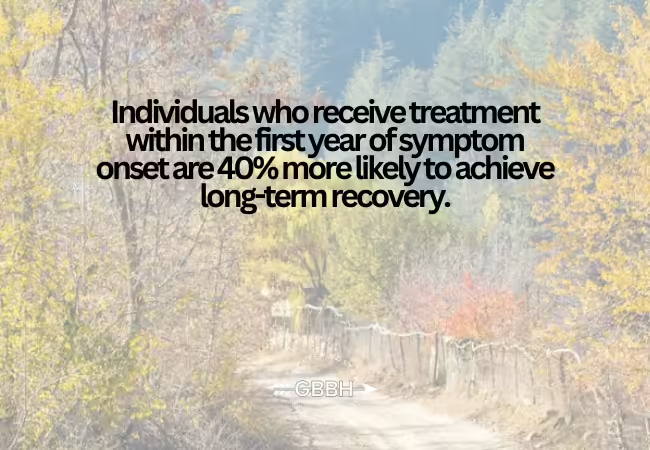Mental health challenges affect millions of people worldwide, yet stigma remains one of the most significant barriers to seeking help. According to the National Alliance on Mental Illness (NAMI), nearly 1 in 5 adults in the U.S. experience a mental health condition each year, yet many do not receive the treatment they need. Stigma perpetuates feelings of shame, fear, and isolation, making it harder for individuals to access life-changing resources.
At Greater Boston Behavioral Health, we are committed to breaking the stigma surrounding mental health. Our programs, including the Mental Health Program, Anxiety Treatment Program, and Depression Treatment Program, provide a safe and supportive environment for individuals to seek help and begin their journey toward healing. This blog explores the roots of mental health stigma, its harmful effects, and the importance of seeking professional care.
What Is Mental Health Stigma?
Mental health stigma refers to the negative attitudes, beliefs, and stereotypes associated with mental health conditions. These misconceptions can manifest in two primary ways:
- Public Stigma: Negative societal views that label individuals with mental health challenges as weak, unstable, or dangerous.
- Self-Stigma: Internalized shame that leads individuals to feel embarrassed or unworthy of seeking help.
Common Myths That Fuel Stigma
- “Mental health problems are a sign of weakness.”
Mental health conditions are medical issues, just like physical illnesses, and have no correlation with personal strength. - “Therapy is only for severe mental illness.”
Therapy and Mental Therapy Programs are beneficial for individuals at all stages of mental health challenges, from mild stress to complex conditions. - “People with mental health conditions are dangerous.”
The vast majority of individuals with mental health challenges are non-violent and pose no risk to others.
The Impact of Mental Health Stigma
Stigma has far-reaching consequences for individuals struggling with mental health challenges. It creates significant barriers to seeking help, maintaining recovery, and building fulfilling lives.
1. Delayed Treatment
Stigma often causes individuals to delay seeking help. On average, people wait 11 years from the onset of symptoms before accessing professional care. During this time, symptoms may worsen, leading to more severe conditions.
2. Increased Emotional Distress
The shame associated with stigma can exacerbate feelings of isolation, anxiety, and depression. This often results in co-occurring conditions, such as substance use disorders or anger management issues, which may require specialized care like an Anger Management Program.
3. Barriers to Recovery
Without proper support, individuals may struggle to develop coping mechanisms, address the root causes of their challenges, or rebuild their lives. Stigma also discourages individuals from participating in programs like Group Therapy Programs or Family Therapy Programs, which provide essential community and relational support.
Why Seeking Help Is Essential
Seeking professional help is a critical step in addressing mental health challenges and overcoming the stigma associated with them. Here’s why taking this step matters:
1. Mental Health Conditions Are Treatable
Conditions such as anxiety, depression, and trauma-related disorders are highly treatable. Professional care through programs like:
- Anxiety Treatment Programs helps individuals manage triggers and reduce symptoms.
- Depression Treatment Programs addresses the root causes of depression and builds long-term coping strategies.
- Trauma Therapy Programs provides tools to process past experiences and build resilience.
2. Early Intervention Improves Outcomes
The sooner individuals seek help, the better their chances of recovery. Programs like the Partial Hospitalization Program (PHP) and Intensive Outpatient Program (IOP) at Greater Boston Behavioral Health offer structured care for individuals at various stages of their recovery journey.
3. Professional Support Reduces Isolation
Therapists and group sessions provide a safe space to share experiences, build connections, and develop healthier ways to navigate life. Programs like Group Therapy Programs foster a sense of community and belonging.
4. Therapy Provides Long-Term Solutions
Professional care equips individuals with evidence-based strategies to manage symptoms, prevent relapse, and achieve sustained well-being. Modalities such as Cognitive Behavioral Therapy (CBT) and Dialectical Behavior Therapy (DBT) are particularly effective.
How Greater Boston Behavioral Health Supports Mental Health Recovery
At Greater Boston Behavioral Health, we provide a wide range of services to meet the diverse needs of individuals seeking mental health care. Our goal is to create a stigma-free environment where clients feel empowered to take control of their mental health.
Comprehensive Mental Health Programs
We offer tailored treatment options to address various mental health conditions:
- Mental Health Program: A holistic approach that combines therapy, skill-building, and wellness practices.
- Anxiety Treatment Program: Focused on managing triggers, reducing anxiety symptoms, and fostering resilience.
- Depression Treatment Program: Provides a pathway to recovery through therapy and support.
- Trauma Therapy Program: Helps clients process unresolved trauma in a safe and supportive setting.
Flexible Levels of Care
Our continuum of care ensures that individuals receive the appropriate level of support:
- Partial Hospitalization Program (PHP): Offers intensive daily therapy for those requiring structured support.
- Intensive Outpatient Program (IOP): A step down from PHP, allowing clients to balance treatment with work or family responsibilities.
Specialized Therapy Options
- Group Therapy Programs: Provide shared learning, peer support, and community building.
- Family Therapy Programs: Strengthen relationships and create a supportive home environment.
- Anger Management Programs: Teach strategies for managing emotional responses constructively.
Breaking the Stigma: Steps to Take
Overcoming mental health stigma requires collective effort. Here are actionable steps individuals and communities can take to break down barriers:
1. Educate Yourself and Others
Learn about mental health conditions, their causes, and treatment options. Sharing accurate information helps dispel myths and reduce stigma.
2. Normalize Conversations About Mental Health
Talking openly about mental health creates a culture of acceptance and understanding. Sharing personal experiences can inspire others to seek help.
3. Encourage Seeking Professional Help
Support loved ones in taking the first step toward recovery. Offer to accompany them to therapy or connect them with resources like Greater Boston Behavioral Health.
4. Advocate for Mental Health Resources
Support initiatives that increase access to mental health care in schools, workplaces, and communities. Advocate for parity between physical and mental health care.
5. Model Compassion and Understanding
Be empathetic and non-judgmental toward those facing mental health challenges. Small gestures of support can make a big difference.
Success Stories: Transforming Lives by Seeking Help
Case Example 1: Overcoming Anxiety
Emma* struggled with social anxiety but hesitated to seek help due to stigma. After enrolling in the Anxiety Treatment Program, she developed tools to manage her triggers and gained confidence through Group Therapy Programs. Today, Emma leads a more fulfilling life and actively advocates for mental health awareness.
Case Example 2: Rebuilding Relationships
John* faced depression and felt disconnected from his family. Through the Depression Treatment Program and Family Therapy Program, he learned to communicate effectively and rebuild trust with loved ones. His recovery has inspired others in his community to seek help.
Choosing Greater Boston Behavioral Health
At Greater Boston Behavioral Health, we believe that seeking help is a sign of strength, not weakness. Our experienced team and evidence-based programs provide the support individuals need to overcome challenges and build fulfilling lives.
Why Choose Us?
- Personalized Treatment: Tailored care plans that address each client’s unique needs.
- Comprehensive Services: From PHP and IOP to family therapy and trauma-focused care.
- Expert Team: Therapists trained in evidence-based approaches like CBT and DBT.
- Welcoming Environment: A stigma-free space for healing and growth.
Take the First Step Toward Recovery
Seeking help for mental health challenges is a courageous decision that can transform your life. At Greater Boston Behavioral Health, we are here to support you every step of the way.
Contact us today at (888)278-0716 to learn more about our programs, including the Mental Health Treatment Program, Trauma Therapy Program, and Group Therapy Program. Together, we can help you break the stigma and embrace a brighter future.
FAQ on Seeking Help for Mental Health Challenges
Why is mental health stigma such a significant barrier?
Stigma creates shame, fear, and misunderstanding about mental health, leading individuals to avoid seeking help. It perpetuates myths that mental health challenges are a sign of weakness or instability.
How can seeking help improve mental health?
Seeking professional help provides access to effective treatments, such as therapy and structured programs like PHP and IOP, that address the root causes of mental health challenges and equip individuals with coping tools.
What programs are available for mental health support?
At Greater Boston Behavioral Health, we offer a range of services, including the Mental Health Program, Anxiety Treatment Program, Depression Treatment Program, and Trauma Therapy Program, tailored to individual needs.
How do therapy programs reduce stigma?
Programs like Group Therapy and Family Therapy provide a safe, supportive space for individuals to share their experiences and connect with others, helping to normalize discussions about mental health.
How can I help someone struggling with mental health stigma?
Encourage open conversations, provide empathetic support, and help them access resources like therapy or mental health programs. Offering to accompany them to their first session can also be helpful.


